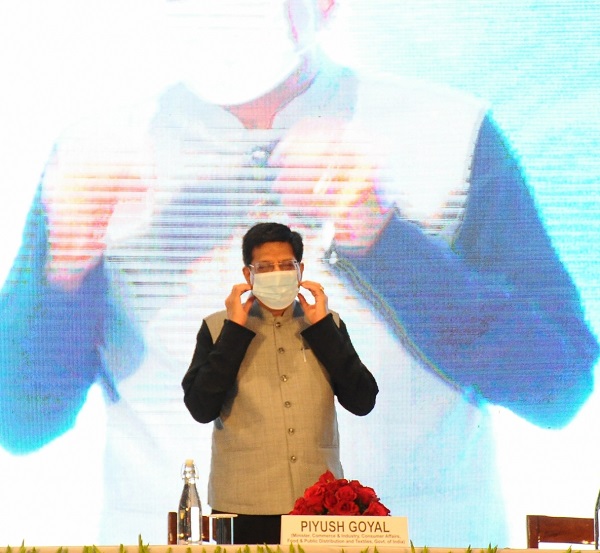New Delhi, (Asian independent) India’s Commerce and Industry Minister Piyush Goyal and South Korea’s Trade Minister Han-koo Yeo will hold a meeting on Tuesday to discuss bilateral trade-related issues.
The discussion will focus on addressing the large trade deficit, market access issues, and non-tariff barriers faced by Indian exporters, as well as investment-related issues. The meeting is expected to further boost India-Korea trade relations in an equitable and balanced manner to the mutual advantage of both countries, according to the Commerce Ministry
As per the Ministry of External Affairs, the trade and economic relations between India and South Korea have gathered momentum in recent years with annual bilateral trade reaching $21.5 billion in 2018, crossing the $20 billion mark for the first time. Bilateral trade in January-December 2020 was recorded $16.9 billion. The bilateral Comprehensive Economic Cooperation Agreement (CEPA), set in place since 2010, has spurred trade and investments both ways.
In 2018, South Korea’s investment in India crossed the $1 billion mark for the first time, recording $1.053 billion.It’s total FDI to India up to September 2020 stands at $6.94 billion. Investments from India in South Korea are to the tune of approx $3 billion led by Tata Daewoo, Ssangyong and Novelis.
According to data from the South Korean Ministry of Trade, Industry, and Energy, the bilateral trade in the first half (January-June) of 2021 was recorded at $10.97 billion, an increase of 38 per cent compared to the same period of the previous year.
South Korea’s exports to India increased 38.5 per cent ($7.4 billion), imports increased 37.4 per cent ($3.6 billion), and the trade balance recorded a surplus of $3.8 billion.
The growth of exports and imports was rapidly improving aided by the strong base effect from a year ago, when the Indian government implemented the national lockdown to combat the first Covid-19 wave. While a severe second Covid-19 wave hit India in April last year, the localised restrictions of economic activity were not as adversely affected as the previous year.








